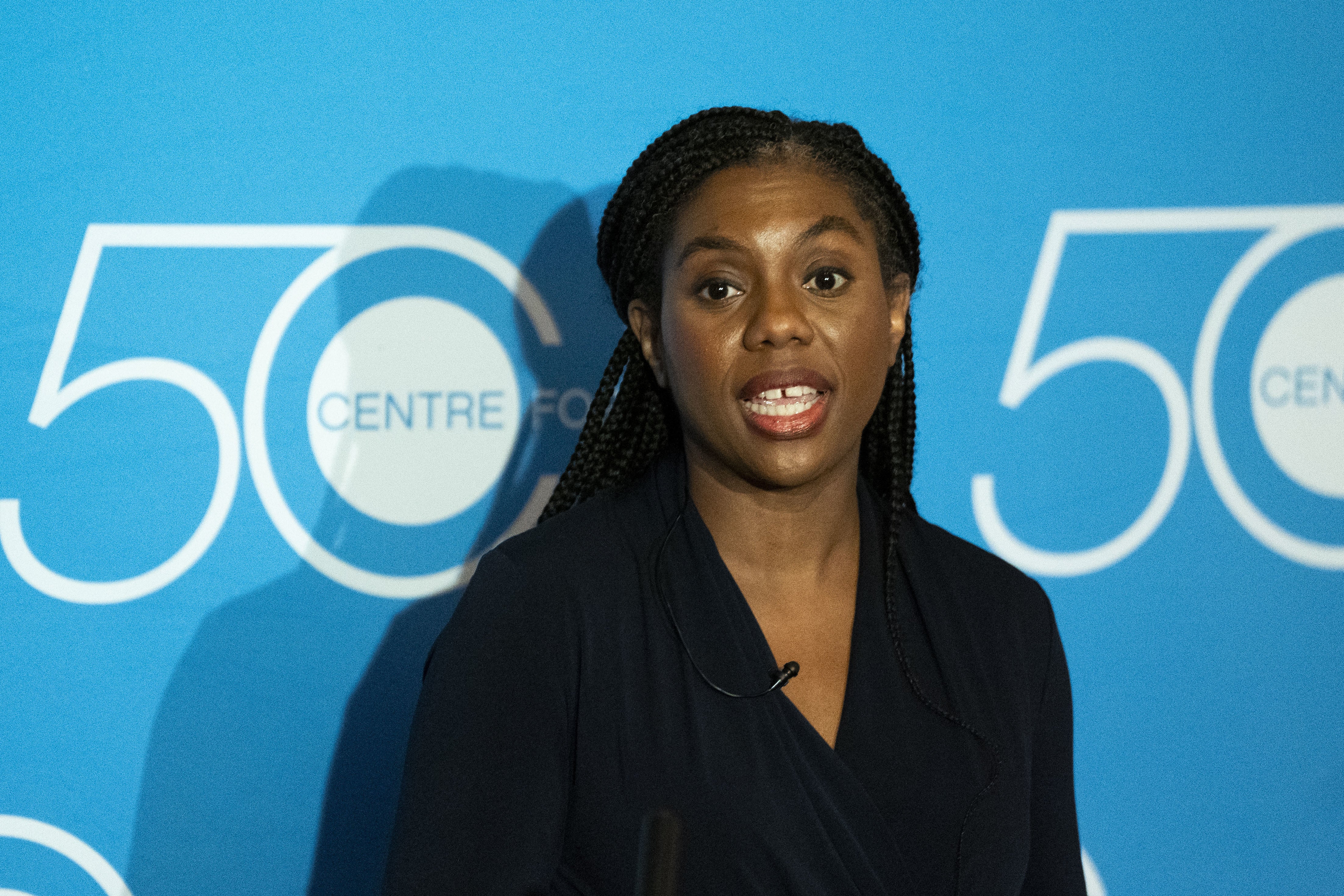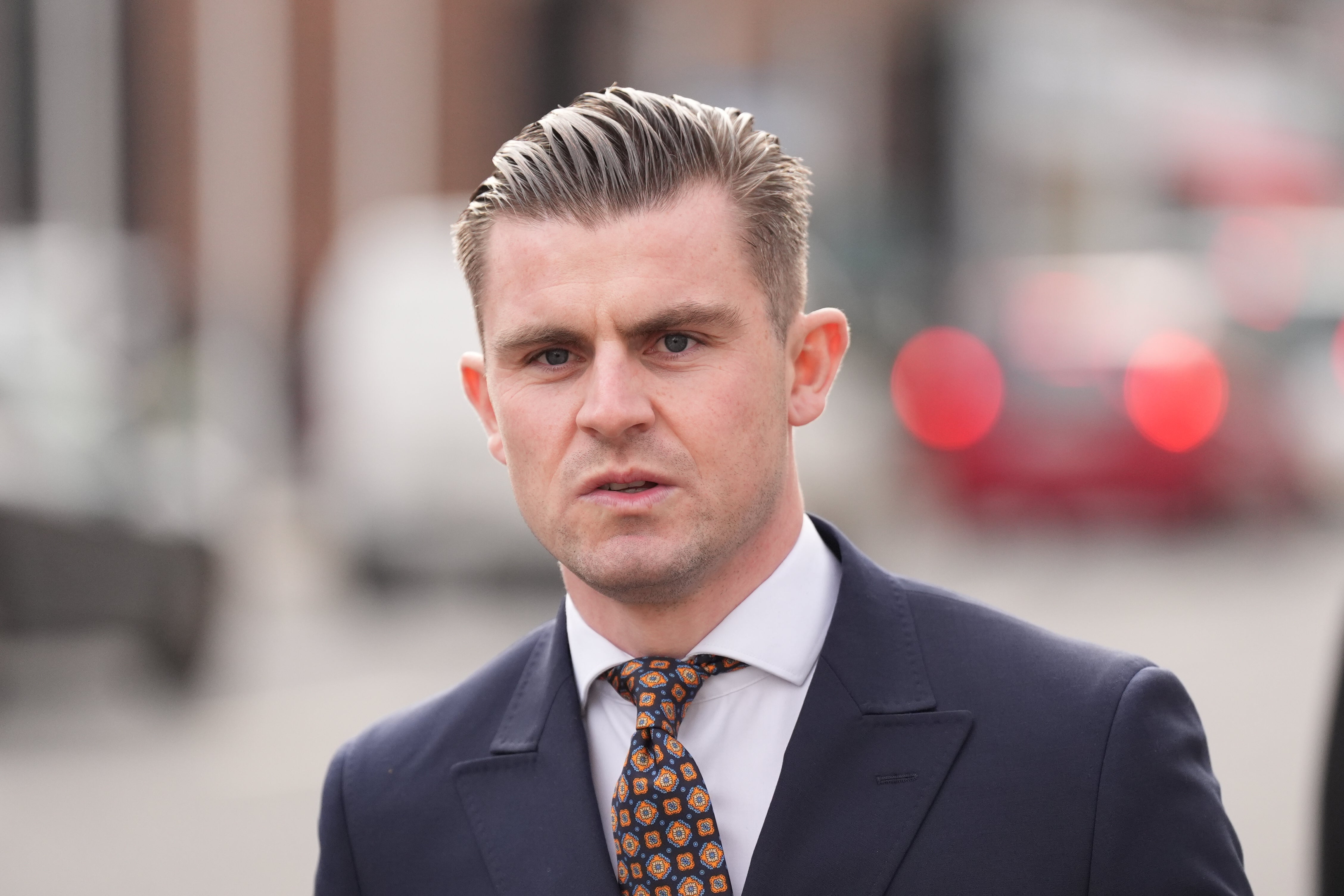‘They broke their own laws’: Irish group Kneecap win legal challenge over Kemi Badenoch funding decision
The band said they were discriminated against on grounds of nationality

Your support helps us to tell the story
From reproductive rights to climate change to Big Tech, The Independent is on the ground when the story is developing. Whether it's investigating the financials of Elon Musk's pro-Trump PAC or producing our latest documentary, 'The A Word', which shines a light on the American women fighting for reproductive rights, we know how important it is to parse out the facts from the messaging.
At such a critical moment in US history, we need reporters on the ground. Your donation allows us to keep sending journalists to speak to both sides of the story.
The Independent is trusted by Americans across the entire political spectrum. And unlike many other quality news outlets, we choose not to lock Americans out of our reporting and analysis with paywalls. We believe quality journalism should be available to everyone, paid for by those who can afford it.
Your support makes all the difference.Irish language rap group Kneecap have won their legal challenge over a decision by former business secretary Kemi Badenoch to refuse them a £14,250 funding award.
The UK government was forced to concede the decision was “unlawful”.
The band had launched legal action claiming the decision to refuse the grant discriminated against them on the grounds of nationality and political opinion.
During a brief hearing at Belfast High Court on Friday, Mr Justice Scoffield said he was glad that the two sides in the case had reached agreement.
Reading an agreed statement, barrister for Kneecap Ronan Lavery KC said: “It is declared that the decision is unlawful, procedurally unfair, took into account immaterial considerations and failed to take into account relevant factors.”
It was agreed that the sum of £14,250 would be paid by the government to the group.
The west Belfast hip-hop artists had applied for a grant allocated to support UK-registered artists in global markets.
Their application to the Music Export Growth Scheme had been approved by the British Phonographic Industry (BPI).

However, the grant scheme is overseen by the Department for Business and Trade, and the Department for Culture, Media and Sport at Westminster and the then business secretary Ms Badenoch, now the Conservative Party leader, decided to refuse the funding in February.
At the time, a government spokesperson said it fully supported freedom of speech but that it was “hardly surprising” that it did not want to hand out UK taxpayers’ money to those opposed to the United Kingdom.
Kneecap, formed in 2017 by three friends who perform under the stage names Mo Chara, Moglai Bap and DJ Provai, openly court controversy with their provocative lyrics and merchandise.
Enjoy unlimited access to 100 million ad-free songs and podcasts with Amazon Music
Sign up now for a 4 month free trial (3 months for non-Prime members)
Enjoy unlimited access to 100 million ad-free songs and podcasts with Amazon Music
Sign up now for a 4 month free trial (3 months for non-Prime members)
The group had said their views in favour of Irish unity, and in particular a poster for their 2019 “Farewell to the Union” tour, had angered the Conservative Party.
Following the agreement, the band said they would donate the grant to two youth organisations in Belfast – one from a nationalist and one from a unionist area.
A statement from the band said: “For us, this action was never about £14,250; it could have been 50 pence.
“The motivation was equality.
“This was an attack on artistic culture, an attack on the Good Friday Agreement itself and an attack on Kneecap and our way of expressing ourselves.”
The statement added: “The former secretary of state Kemi Badenoch and her department acted unlawfully; this is now a fact.
“They don’t like that we oppose British rule, that we don’t believe that England serves anyone in Ireland and the working classes on both sides of the community deserve better; deserve funding, deserve appropriate mental health services, deserve to celebrate music and art and deserve the freedom to express our culture.
“They broke their own laws in trying to silence Kneecap.”
They added: “They have tried to silence us and they have failed.”

The band’s lawyer, Darragh Mackin from Phoenix Law, said: “A court has exonerated our clients and declared this decision unlawful in every sense of the word.
“Today is not only a victory for Kneecap but a victory for the arts, for culture, for the freedom of expression.
“Kneecap continue to lead by example in practising what they preach.”
A statement from the Department for Business and Trade said: “This government’s priority is to try and reduce costs and help protect the taxpayer from further expense, so we will not continue to contest Kneecap’s challenge as we do not believe it in the public interest.
“The music industry is the heart and soul of our economy and are committed to helping acts continue to thrive and break into new markets, including through our Megs [music export growth scheme] programme – which has helped around 400 artists tour the globe.”